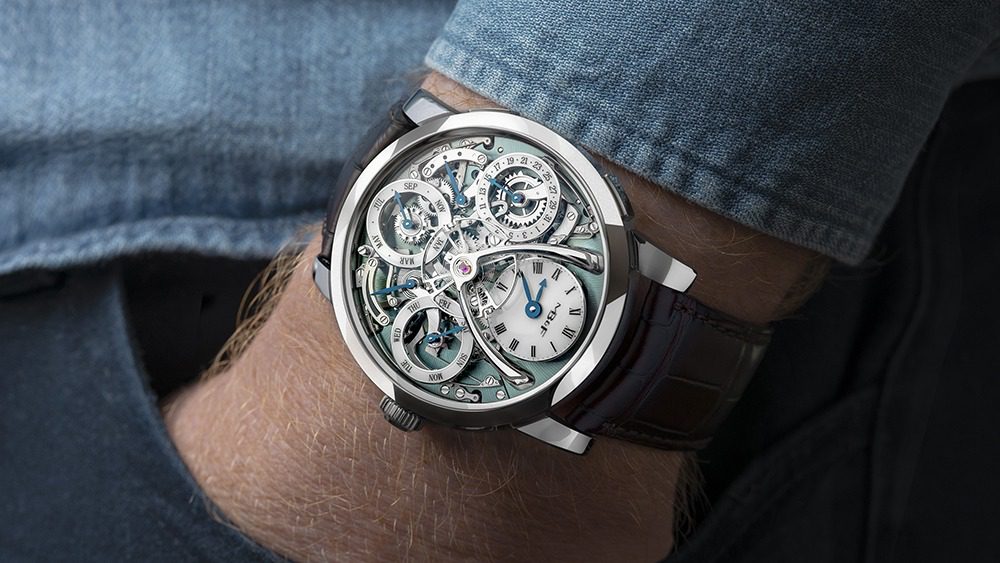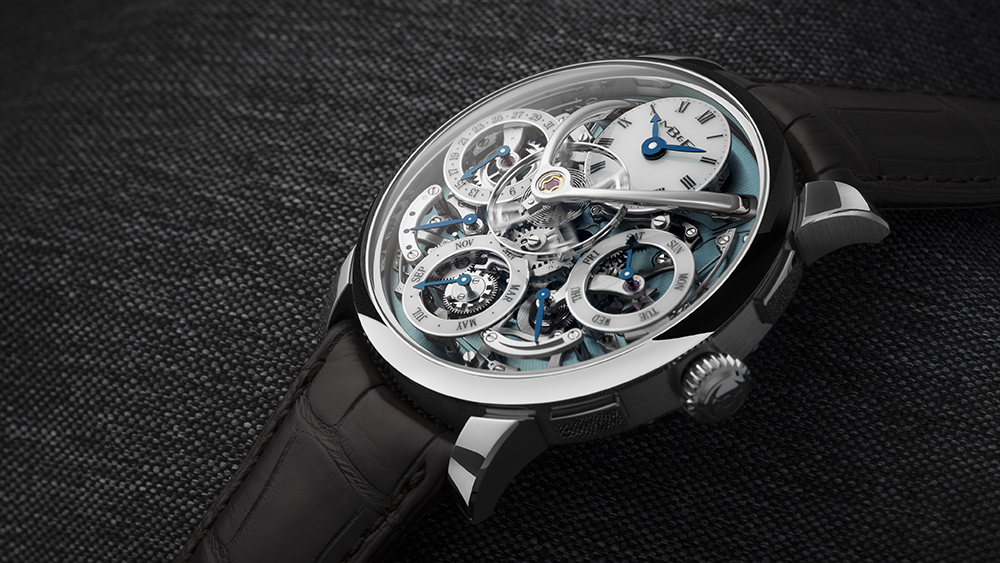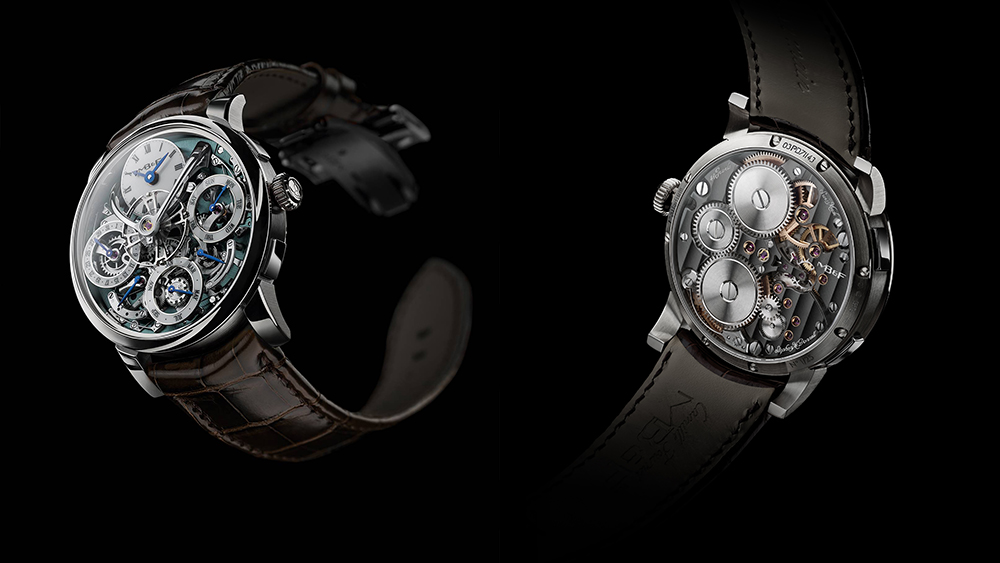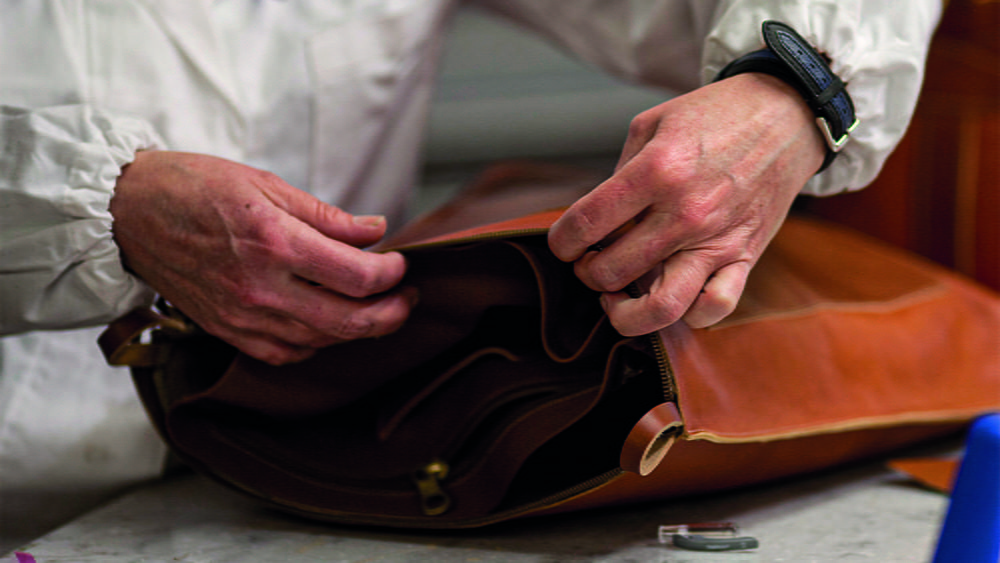
MB&F Is Only Making 25 of Its New LM Perpetual Watches in Palladium
The silver-white metal is both lighter and harder than platinum, which makes it a near-perfect watch case material.
MB&F is making one of its most coveted inventions, the LM Perpetual, in one of the rarest and most prized metals, palladium.
The platinum-group metal is a near-perfect material for watches. It has the purity and luster of platinum and an even whiter color, and unlike nickel, which is often alloyed with gold to make it white, palladium is hypoallergenic. It is naturally silver-white, without the need for any other whitening alloy or plating, and it is lightweight by comparison to platinum, making it ideal for large pieces. It is harder than platinum, which makes it even more wearable.
The Legacy Machine Perpetual, first launched in 2015, has already been done platinum, titanium and yellow, red and white gold, always in limited quantities: 25 pieces each, except for the titanium option, which was a 50-piece series. There will be 25 pieces of the new Palladium 950 edition.
“The choice of palladium is not an easy one,” says MB&F. “Surprisingly, the cost of the raw material surpasses both gold and platinum today, and it is significantly more difficult to machine than platinum, making these 25 pieces a true challenge to craft.”
The price factor wasn’t always an issue; in the mid-2000s, it was considered a wonder metal. In 2005, palladium was tracking at an entirely reasonable $350 to $360 per ounce, compared to platinum’s high $890s and gold’s $730, and it was being hailed as the great new metal for the jewelry industry, replacing nickel in many white gold alloys. Around that time, watch brands, including Cartier, Parmigiani Fleurier and Ulysse Nardin were releasing palladium models. Since then, however, the price of palladium has gone up sharply (today it hovers at around $2,000 per ounce, compared to $973 for platinum and $1,700 for gold. According to Economic Times, palladium has traded above gold since 2019, due to demand and limited supply. “As governments across the world are tightening pollution-related norms, the demand for emissions-reducing catalysts, in which palladium is used, has gone up sharply,” the paper reported earlier this year.

Alex Teuscher/MB&F
Still, the price of the LM Perpetual in palladium is only slightly higher than the gold and platinum versions. When it was launched in 2015, the rose gold version was $145,000, white and yellow gold were $182,000, and the platinum was $176,000. The new palladium model is $206,000.
The dial plate of the LM Perpetual Palladium is a sunray aquamarine that varies between shades of pale blue, green and gray, depending on the light, but the real show on the dial side is the movement. Created in collaboration with Northern Irish watchmaker Stephen McDonnell, the design’s animating idea was to raise the perpetual calendar indications above the plane of the dial, using a system of stacked gears that reinterpret the perpetual calendar mechanism. It is a fully integrated 581-component caliber, with no module or base movement, using a proprietary new system for calculating the number of days in each month. Traditional perpetual calendar mechanisms use a 31-day month as the default and then skip through superfluous dates for the months with fewer days. This process requires something called a grand levier or big lever. The LM Perpetual uses a mechanical processor that starts with a default 28-day month and adds extra days as required. There is no fast-forwarding or skipping redundant days. MB&F says this makes for fewer maintenance issues and smoother operation. Dates can skip; they are relatively easy to damage if adjusted while the date is changing. The Legacy Machine Perpetual won the Best Calendar Watch Prize at the Grand Prix d’Horlogerie de Genève, or GPHG, in 2016.

MB&F
The skeletonized subdials, which appear to float above the movement with no visible attachments, rest on hidden studs, which is technically impossible with traditional perpetual calendar mechanisms because they would block the movement of the big lever. The raised balance hovering at the center of the dial is connected to the escapement on the back of the movement by what MB&F says “must be the world’s longest balance staff.” Hours and minutes appear in the subdial at 12 o’clock, while the day of the week appears at 3 o’clock. There is a power reserve indicator at 4 o’clock, a month subdial at 6 o’clock, a retrograde leap year indicator at 7 o’clock and a date ring at 9 o’clock. MB&F has upgraded the corrector pushers on this version to be more ergonomic and has put a darker movement finish on the back, offering more contrast.



